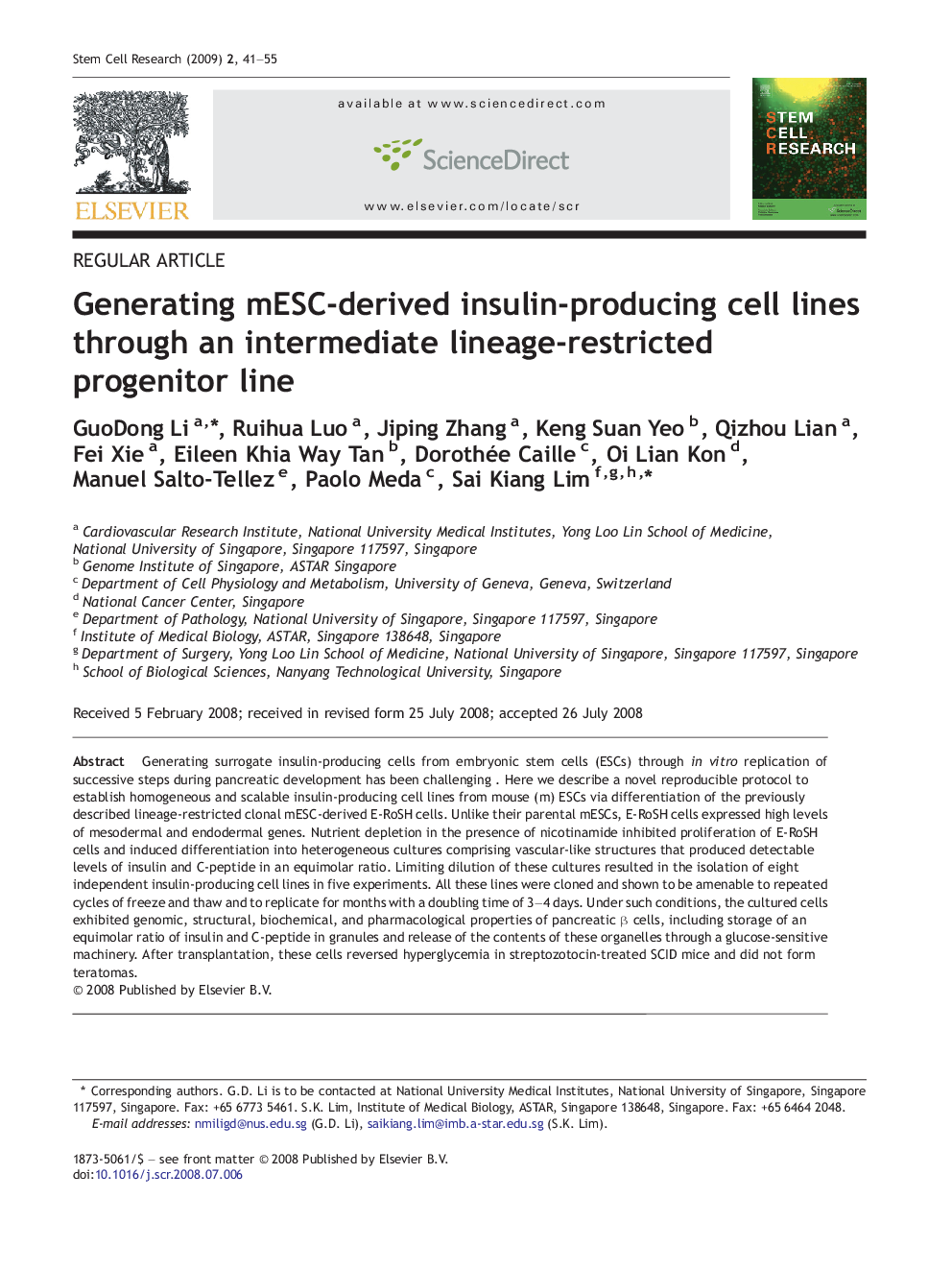| Article ID | Journal | Published Year | Pages | File Type |
|---|---|---|---|---|
| 2094383 | Stem Cell Research | 2009 | 15 Pages |
Generating surrogate insulin-producing cells from embryonic stem cells (ESCs) through in vitro replication of successive steps during pancreatic development has been challenging . Here we describe a novel reproducible protocol to establish homogeneous and scalable insulin-producing cell lines from mouse (m) ESCs via differentiation of the previously described lineage-restricted clonal mESC-derived E-RoSH cells. Unlike their parental mESCs, E-RoSH cells expressed high levels of mesodermal and endodermal genes. Nutrient depletion in the presence of nicotinamide inhibited proliferation of E-RoSH cells and induced differentiation into heterogeneous cultures comprising vascular-like structures that produced detectable levels of insulin and C-peptide in an equimolar ratio. Limiting dilution of these cultures resulted in the isolation of eight independent insulin-producing cell lines in five experiments. All these lines were cloned and shown to be amenable to repeated cycles of freeze and thaw and to replicate for months with a doubling time of 3–4 days. Under such conditions, the cultured cells exhibited genomic, structural, biochemical, and pharmacological properties of pancreatic β cells, including storage of an equimolar ratio of insulin and C-peptide in granules and release of the contents of these organelles through a glucose-sensitive machinery. After transplantation, these cells reversed hyperglycemia in streptozotocin-treated SCID mice and did not form teratomas.
